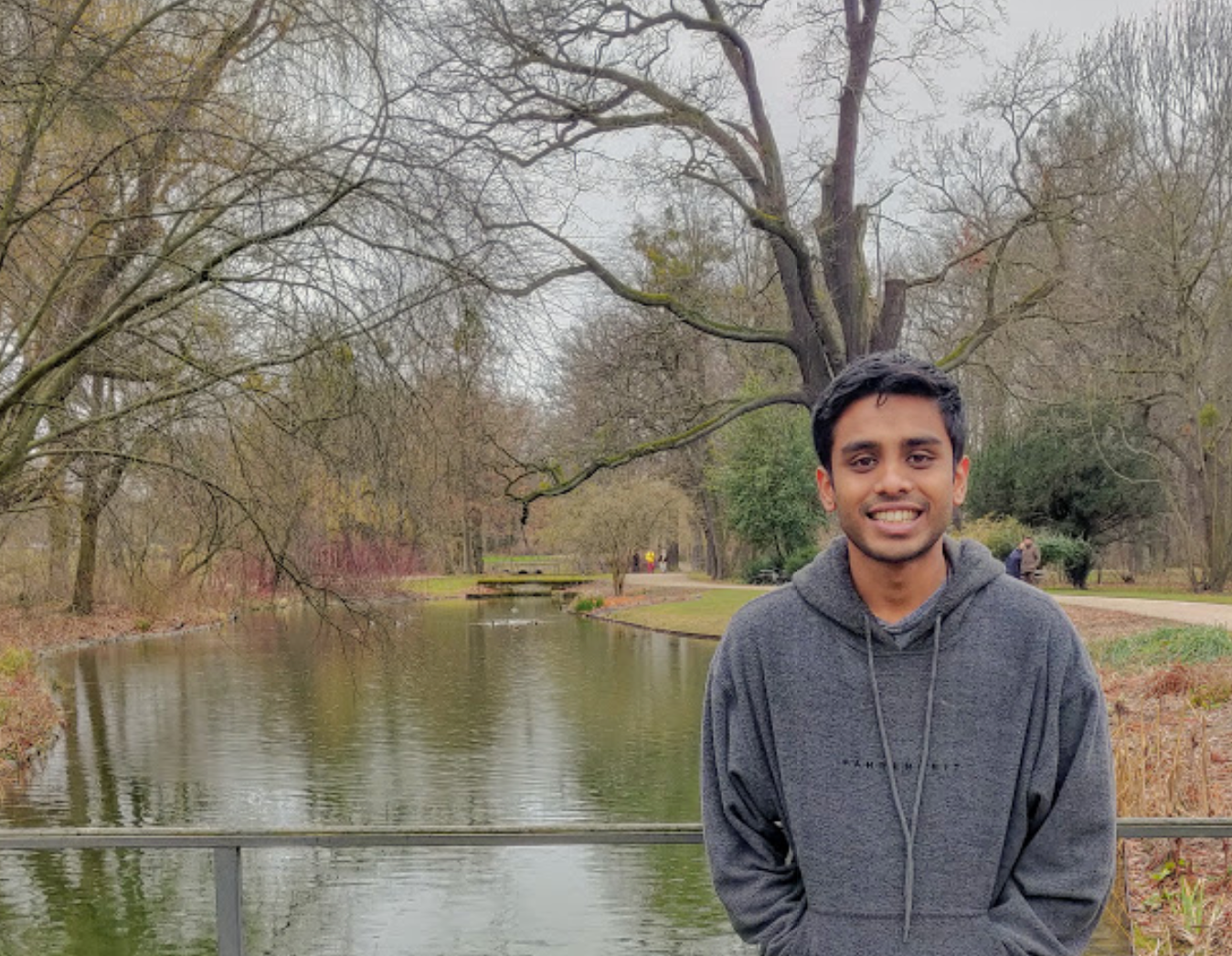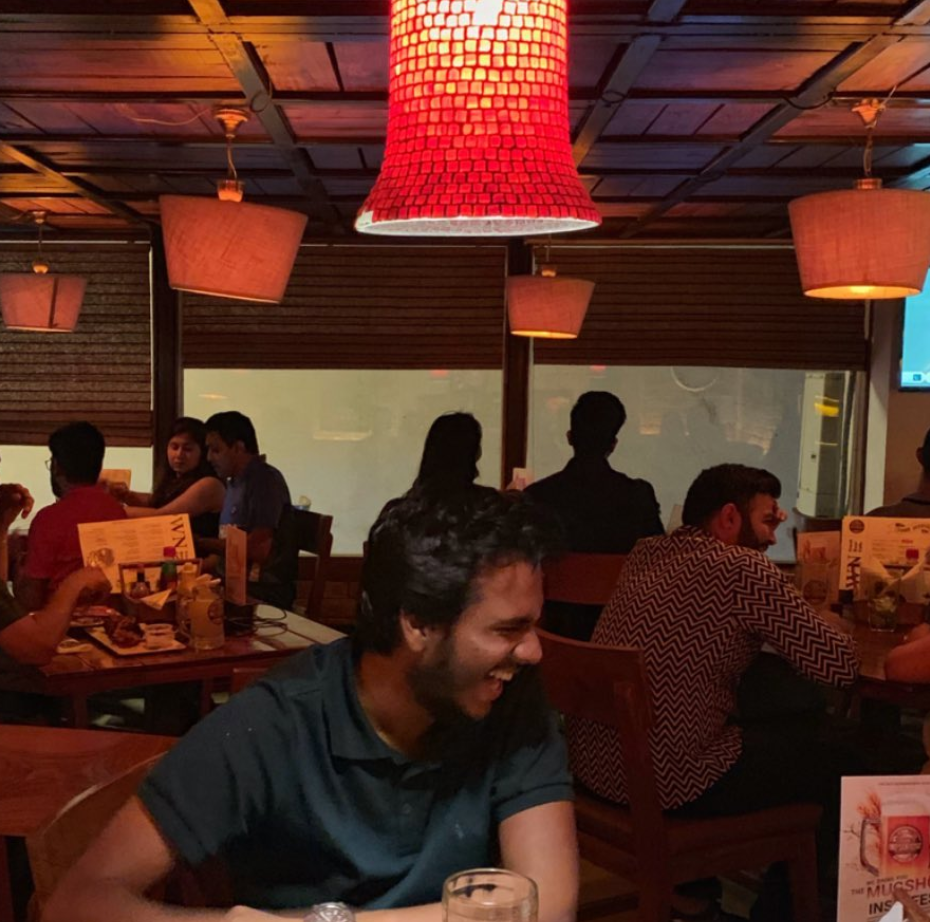

Body of IITR

I didn’t really do an internship this summer. I might have done one had it not been for the pandemic - or atleast I like to believe that. But I did do a couple of internships post July. I am a physics student, and a really unsurprising one at that. I finally managed to amass the courage and patience required to send massive email blasts asking for research internships/projects in July, and got two positive responses. These were from the SiPM (Instrumentation) Group at the Department of High Energy Physics, TIFR, and the Vector Boson Scattering (ATLAS, CERN) group based in Technische Universitat Dresden (Germany).
I did a small internship at the end of my second year at Inter University Accelerator Centre Delhi, and this was a result of being interested in nuclear physics since my 4th semester, when Professor Ajay Deo from IITR took a fascinating course on the same. I was soon interested in its high energy variant - particle and high energy physics, and right now, I like to concern myself more with the experimental and computational aspects of particle physics (as opposed to hardcore theory). This isn’t really a Statement of Purpose, but I would be remiss to not mention why I chose the field in the first place. I think the notion of unification, and a few mathematical lines describing the working universe as we know it, is a riveting one, and I thus spent some time during the month of July this year, poring over the internet, to find universities in India and abroad, where experimental particle physics groups performed work that interested me. It takes a while, but after a point I didn’t hesitate to reach out to a professor or scientist working in my field. Moreover I’ve been a German football and Bayern Munich fan for ages, so maybe that played a role in zeroing in on the country.
At the time of this writing, my CGPA is a sober 8.302 on a scale of 10. It was a bit lower when I was applying for internship programs during my third year - the usual ones like MITACS, DAAAD, CHARPAK. I’ve decided to mention all my “pointers” - if at all you care about that - at the very end, so at the moment I will only mention that no, I didn’t make the cut in these programs, and yes, it is highly likely that my sober CGPA was the reason. However, thankfully our GSUITE IDs do not come with a CGPA lock, and so I mailed a bunch of professors in India and abroad. When I was doing this initially during my third year, I found it hard to mail people working in particle physics, given that I had no formal academic knowledge of the same. And so I taught myself during the forced retreat to my sanctum (owing to the pandemic), and spent a few months delving into the theoretical aspect of my field, before mustering the courage to mail professors and academics of the world over in July. It is important here to mention that yes, I did send a lot of emails, but I didn’t mass-mail, in the sense that they were all personalised. But again, I shall revisit this in the Pointers section. As mentioned earlier, I got two positive responses (via email), and these were both followed by short interviews, which would probably be colloquially understood as “HR Rounds”. In any case, I was able to start working by August.
Again, I find it noteworthy to mention that I chose to pursue two internships. August is when the semester started, and yes I did have my thesis project going on, along with a few graduate courses. Ideally, I would have done my internship - remote or otherwise - much earlier, but that didn’t pan out, and I did need experience as well as references, since I had planned on applying for a Master’s this year. However I do not recommend taking on this much amount of work unless you deem it to be absolutely necessary, which in most cases it won’t be.
Remote work of course has the limitation that experiment isn’t possible - however on the plus side, both my internships instilled in me a deep respect for the computational aspect of particle physics. At TU Dresden, I was primarily working on understanding and developing Statistical Tools and Methods to essentially discern what a particular set of observations (data collected at CERN) meant. Observations are precarious and misleading things, it is upto us to utilise them in a manner that is certain to not be dicey or unpredictable. For those amongst the readers who wish to know more specifically : I was working on comparing frequentist and bayesian approaches to the probability density function construction of the profile likelihood ratio, which served as a test statistic. The success metric was a comparison with the asymptotic Wilk’s theorem.I had to attend a weekly group meeting on Zoom and briefly summarise any updates. I was also in constant touch through the week with PhD students in the group, who helped me through various stages of the project. There were a lot of hiccups along the way - I had to first gain access to CERN’s computing resources, then understand the existing statistical framework, and also learn the software ROOT. But being in constant touch helped immensely and these hurdles were crossed soon, post which it was, for the most part, smooth sailing.
Here my primary focus was on utilising deep learning techniques to recognise images, with the eventual aim of utilising similar techniques for identification of particles during experiments at CERN.The work was new to me, and extremely interesting. So far my work has had nothing to do with physics - I’ve just been learning the techniques. However I believe it is the technique’s eventual application in particle physics that keeps me interested. The group meetings were again weekly on Google Meets, and thankfully were on a different day (as compared to the ATLAS group). I was again in constant touch with one of the students there, who helped me through similar hiccups as stated above, and then some. This was my first formal introduction to the idea of neural networks (other than the usual 3blue1brown series of course) and it is an understatement to say that I was astonished by their power and applicability.
(While some of these are general, some are for the ones into research only)
I have personally always been a fan of contacting people, finding out about their views on life, and receiving “pro tips”. So feel free to ping me if you have any queries. K bye for now